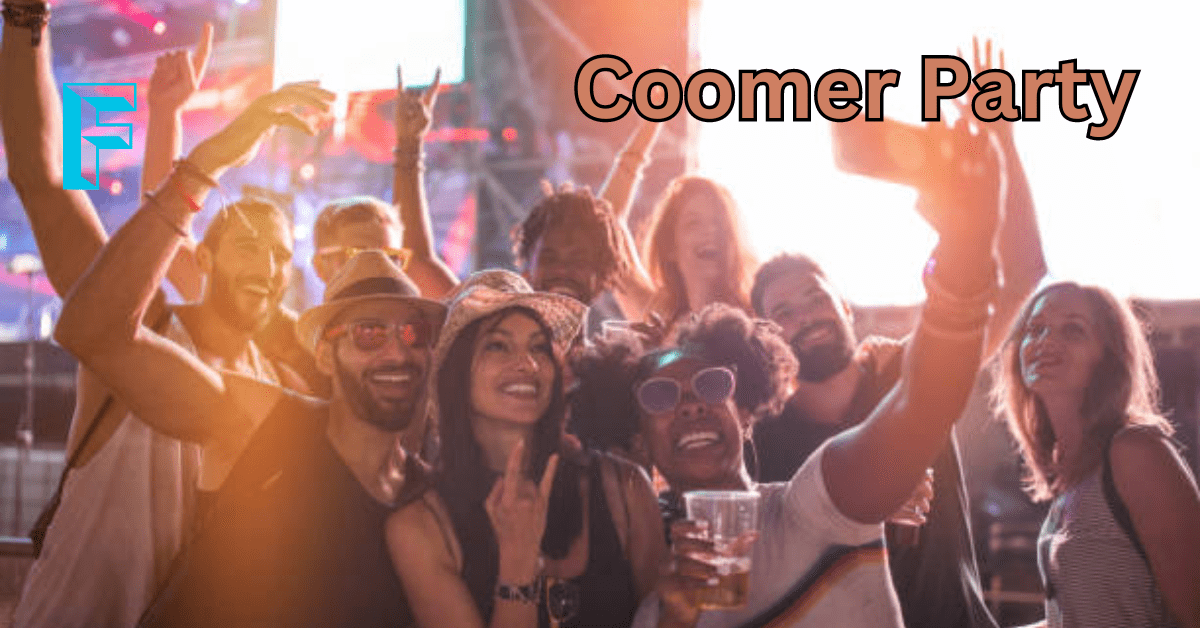Introduction to the term
Coomer Party The internet is a vast landscape filled with trends, memes, and communities that can either lift us up or drag us down. One such phenomenon that has emerged in recent years is the “Coomer Party.” This term may sound amusing at first glance, but it carries deeper implications for social interaction in the digital age. Have you ever found yourself caught up in an online gathering where the focus shifts from a genuine connection to something more chaotic? If so, you’re not alone.
This blog post dives deep into the origins of Coomer Parties, their evolution over time, and their impact on social media and our lives. Whether you’ve heard about them or are just curious to learn more, let’s explore this intriguing aspect of contemporary internet culture together.
The origins of Coomer Party and how it evolved
The term “Coomer Party” has its roots in internet culture, emerging from memes and online discussions surrounding obsessive behaviors. It began as a way to describe individuals who excessively indulge in adult content, often at the expense of their social lives.
As this concept gained traction, it evolved into more than just an insult. The Coomer Party became a phenomenon where like-minded individuals congregated online to share experiences and validate each other’s habits. Platforms like Reddit saw dedicated threads discussing the lifestyle associated with being a “Coomer,” leading to both community building and isolation.
Over time, the narrative shifted from mere comedic commentary to one highlighting the potential consequences of such behavior. Discussions around mental health issues began surfacing alongside jokes about procrastination and avoidance tactics. This evolution reflects broader societal trends regarding digital consumption and personal accountability in an increasingly connected world.
Impact of Coomer Party on social media and online communities
The rise of the Coomer Party has significantly transformed social media dynamics. As individuals flock to platforms for connection, these gatherings often amplify niche interests tied to adult content and escapism.
Within online communities, the Coomer Party fosters a sense of belonging. Members bond over shared experiences and humor related to their habits. This camaraderie can create tight-knit groups that thrive on memes and inside jokes.
However, this impact is not entirely positive. The normalization of excessive consumption can lead to harmful behaviors being glamorized. As users engage in these spaces, they may inadvertently reinforce unhealthy patterns among peers.
Moreover, mainstream platforms must grapple with moderation challenges as Coomer culture permeates conversations. Balancing free expression while ensuring safety becomes an ongoing struggle for community managers across various sites.
Negative effects of the Coomer Party on individuals and society
The Coomer Party phenomenon carries significant repercussions for both individuals and society. Among those affected, mental health issues have emerged as a major concern. Participants often experience anxiety, depression, and feelings of isolation stemming from their excessive engagement.
These gatherings can distort social norms. What starts as a lighthearted celebration of shared interests may devolve into unhealthy behaviors that encourage addiction to stimuli rather than genuine connections.
Social interactions in these settings tend to lack depth. Conversations revolve around surface-level topics, fostering an environment devoid of meaningful exchanges. This superficiality can lead to diminished emotional intelligence over time.
Moreover, the normalization of such parties risks creating a culture where escapism is prioritized over real-life responsibilities and relationships. As more people become entrenched in this cycle, community values erode—leaving behind empty connections and waning societal bonds.
How to identify and avoid participating in Coomer Parties
Identifying a Coomer Party can be straightforward if you know what to look for. These gatherings often revolve around excessive consumption of adult content and an unhealthy fixation on instant gratification.
Pay attention to the language used in discussions. If conversations frequently include references to explicit material or derogatory terms, it’s a red flag.
Another sign is the lack of genuine connection among participants. If interactions feel superficial or focused solely on hedonistic pleasures, it’s best to step back.
To avoid getting sucked into such environments, set clear boundaries for your online engagements. Limit exposure to platforms that foster these behaviors.
Seek communities that prioritize meaningful discussions and shared interests instead. Engaging in wholesome activities can offer much more fulfilling social experiences without the negative baggage associated with Coomer Parties.
Alternatives to corporate parties for entertainment and socialization
Finding enjoyable alternatives to Coomer Parties can enhance your social experiences. Consider joining clubs that focus on shared interests, such as book clubs or gaming groups. These provide a structured space for meaningful interaction.
Outdoor activities are another great option. Hiking with friends or participating in community sports fosters camaraderie and promotes physical well-being.
Creative classes, like painting or cooking workshops, also offer engaging ways to bond with others while learning new skills. Sharing the process of creation often leads to deeper connections.
Volunteering is yet another enriching alternative. Helping out at local shelters not only gives back but connects you with like-minded individuals who share a passion for making a difference.
Exploring these options can lead to healthier interactions and more fulfilling entertainment choices without the pitfalls associated with Coomer Parties.
Conclusion: Encouraging responsible internet usage and healthy social interactions
The rise of the Coomer Party culture highlights a significant aspect of modern online life. While it can be seen as a humorous or entertaining phenomenon, its implications are more serious than they first appear. The blend of escapism and social interaction that Coomer Parties offer may provide temporary relief from stress but often leads to deeper issues for the individuals involved.
Encouraging responsible internet usage is essential in navigating these spaces. Engaging with content mindfully helps maintain a healthy balance between entertainment and well-being. Furthermore, fostering genuine connections through meaningful interactions can enhance our sense of community without falling into the trap of superficial engagement found in Coomer Parties.
It’s vital to explore alternatives that promote healthier ways to socialize and find joy online. Activities like joining interest-based forums, participating in local events, or even creating art can lead to fulfilling experiences that don’t compromise mental health or personal values.
By being aware of the origins, evolution, and impact of trends like the Coomer Party, individuals can make informed choices about their digital lives. Embracing positive habits will ultimately lead to richer relationships both on- and offline while ensuring a more balanced approach to technology consumption.





